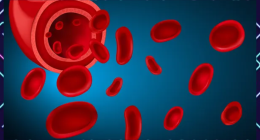Obstructive Sleep Apnoea is common in people with Type 2 Diabetes and it can significantly increase their risk of cardiovascular disease. Read on.
Sleep is important for everyone, irrespective of whether they are healthy or have some health issues. But for people with type 2 diabetes, a good night’s sleep is even more important. Unfortunately, more than 50 percent of patients with this kind of diabetes also suffer from sleep irregularities. At times, it may be so bad that they may need medical intervention. This is what a recent consensus by the Research Society for the Study of Diabetes in India (RSSDI) says. This report highlights the importance of screening for obstructive sleep apnoea in diabetes patients. The report also states that cardiovascular disease is a risk factor of both obstructive sleep apnoea and type 2 diabetes, which makes it all the more important to screen and treat diabetics for sleep disturbances. It also said that proper screening, diagnosis, and treatment of obstructive sleep apnoea in diabetic patients at the initial stages can significantly bring down the risk of cardiovascular disease and improve quality of life.
Also read: Sepsis symptoms: Signs include drop in temperature and shivering
Here’s what the report says
The RSSDI consensus states that many studies have consistently reported a higher prevalence of obstructive sleep apnoea in type 2 diabetes among men than in women. It also says that this is more common in urban areas and has an independent association with poor glycemic control. The reports say that the Continuous Positive Airway Pressure (CPAP) Therapy is the ‘gold standard and the first line of therapy for OSA due to its favorable effects on sleep quality and quantity. However, it adds that the results of this therapy on glycemic control in T2DM patients vary in different studies because of the small sample size and lack of control subjects.
According to Dr. Sibasish Dey, Head, Medical Affairs, Asia and Latin America, ResMed, “Existing scientific literature shows that both the presence and severity of untreated obstructive sleep apnoea is independently associated with poor glycemic control in patients with type 2 diabetes. Overweight individuals exhibiting signs and symptoms of obstructive sleep apnoea, such as habitual snoring, witnessed apnoea, and daytime sleepiness, should consider screening for the co-existence of type 2 diabetes.”
The Indian scenario
In India, more than 77 million adults have type 2 diabetes and the figure is expected to go up to 134.2 million by 2045. The country also has a very high incidence of cardiovascular diseases. Hence, it makes sense to screen diabetics in the country for obstructive sleep apnoea.
Also read: Experts who fear Covid could raise the risk of dementia
Screening for obstructive sleep apnoea
The American Academy Sleep Society advocates the STOP-Bang questionnaire as an initial screening tool. This is the preliminary screening questionnaire, which is a cost-effective tool that helps doctors identify which patients need to go in for further diagnostic tests. Towards this end, diabetologists need to collaborate with sleep specialists to manage such patients and improve their clinical outcomes.
Treatment options
The treatment for obstructive sleep apnoea in patients with type 2 diabetes who are at cardiovascular disease risk includes lifestyle modification and medical management. Nowadays, patients can also opt for CPAP therapy in the comforts of their homes. But losing weight, regular exercise, a healthy diet, and a stress-free life are absolutely essential and there is no substitute for this.
This post first appeared on The Health Site







